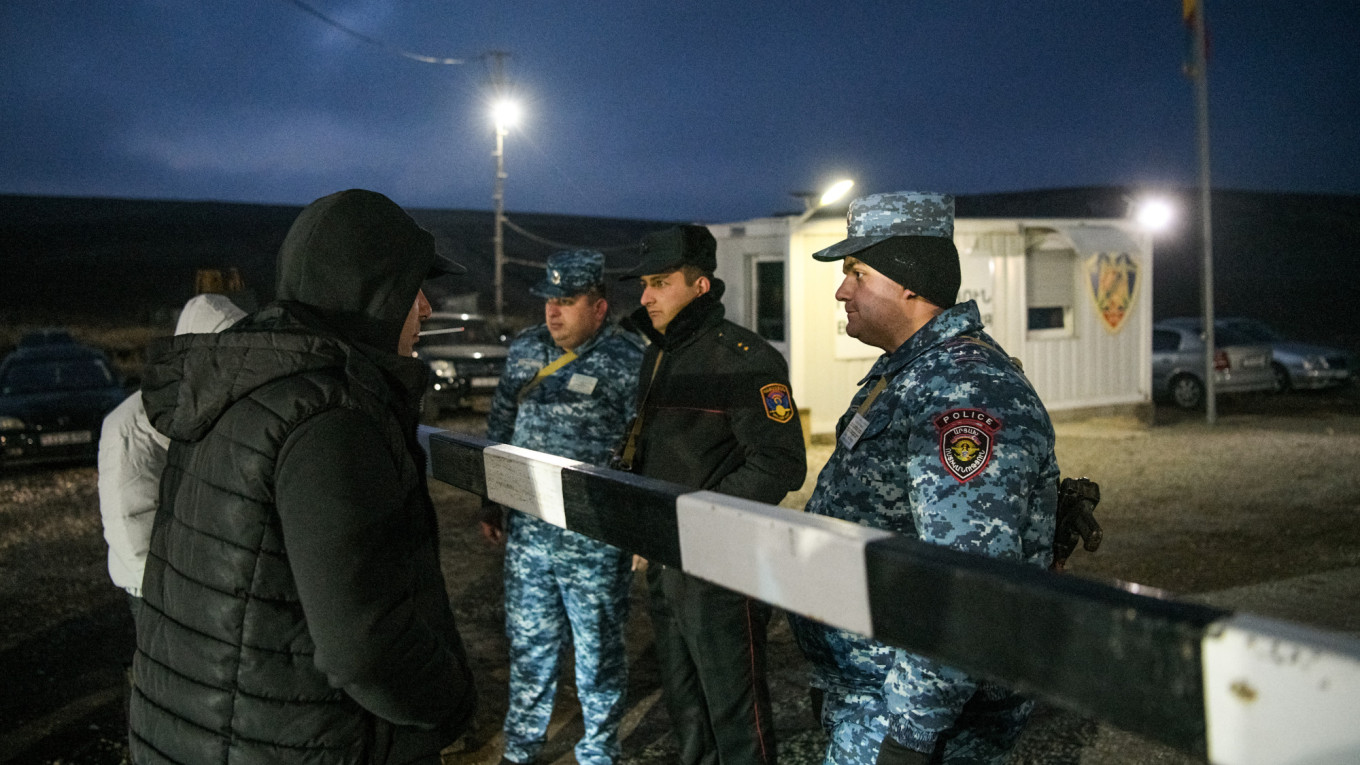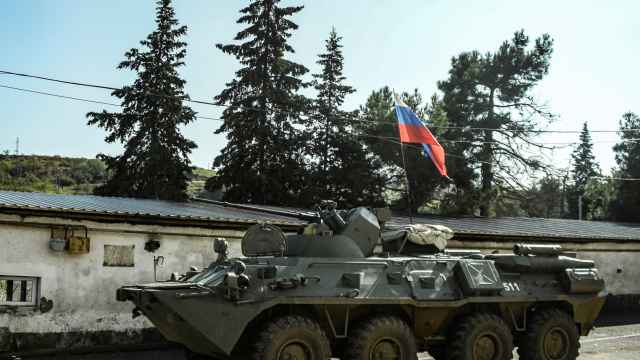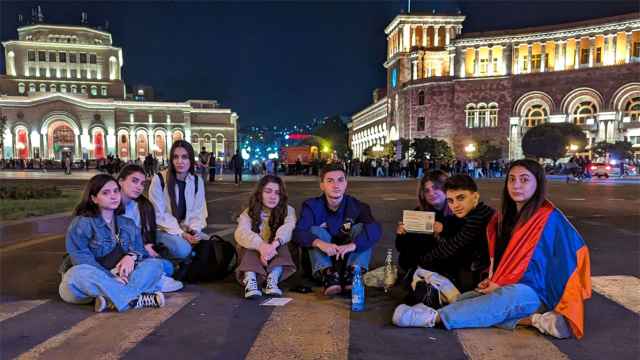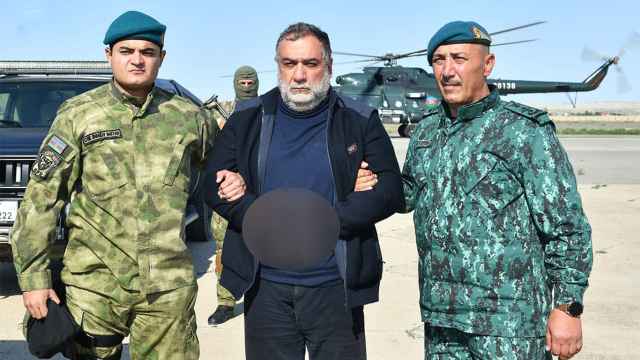Azerbaijan on Sunday set up a checkpoint on the only land link between Armenia and the Nagorno-Karabakh enclave, sparking an angry response from its archrival Yerevan.
The move fuels tensions between the ex-Soviet Caucasus nations that fought two wars over Azerbaijan's Armenian-majority region of Nagorno-Karabakh.
"The units of the Azerbaijani Border Service established a border checkpoint on the sovereign territory of Azerbaijan, at the entrance of the Lachin-Khankendi road," the state border service said.
Baku and Yerevan went to war in 2020 and in the 1990s over Nagorno-Karabakh.
Under the Russia-brokered ceasefire that ended the 2020 conflict, Azerbaijan is required to guarantee safe passage on the Lachin corridor, which is patrolled by Russian peacekeepers.
Azerbaijan, however, said it set up the checkpoint at 12:00 pm (08:00 GMT) on Sunday "to prevent the illegal transportation of manpower, weapons, mines."
It added the checkpoint "shall be implemented in interaction with the Russian peacekeeping force."
Washington said it was "deeply concerned that Azerbaijan's establishment of a checkpoint on the Lachin corridor undermines efforts to establish confidence in the peace process."
"We reiterate that there should be free and open movement of people and commerce on the Lachin corridor and call on the parties to resume peace talks and refrain from provocations and hostile actions along the border," the State Department said in a statement.
A French foreign ministry statement also said it "deplores" the development as a violation of the ceasefire agreements that would hamper the negotiations process.
Since last year tensions have risen over the Lachin corridor, with Russia focused on its offensive in Ukraine.
In December, Azerbaijani activists blocked the Lachin corridor to protest what they claim was illegal mining.
Yerevan accused Baku of staging the demonstrations and creating a humanitarian crisis in the mountainous enclave.
'Gross violation'
In a new escalation on Sunday, Azerbaijan said it built the checkpoint following "threats and provocations" from Armenia, which denied the claims.
Baku accused Yerevan of using the corridor for the rotation of army staff, "the transfer of weapons and ammunition, entrance of terrorists, as well as illicit trafficking of natural resources and cultural property."
It said it recorded military convoys entering Azerbaijan's territory and "the construction of military infrastructure... at the point closest to the territory of Azerbaijan."
The Armenian foreign ministry said the claims were a "far-fetched and baseless pretext."
It said setting up the checkpoint was "a gross violation" of the 2020 ceasefire agreement, part of Baku's "policy of ethnic cleansing in Nagorno-Karabakh."
Separatist authorities of Nagorno-Karabakh called on "the Russian Federation to immediately begin discussions" including on "preventing the establishment" of the checkpoint.
Distracted by its offensive in Ukraine and the confrontation with the West, Russia has been visibly losing influence in the region, which it sees as its traditional sphere of influence.
Yerevan, which relies on Russia as a security guarantor, has grown frustrated over the Kremlin's failure to fulfill its peacekeeping role.
Several servicemen from both sides have been killed in clashes in recent months.
And on Sunday, Armenia reported Azerbaijan's forces killed one of its servicemen.
Azerbaijan said it was responding to enemy fire.
A Message from The Moscow Times:
Dear readers,
We are facing unprecedented challenges. Russia's Prosecutor General's Office has designated The Moscow Times as an "undesirable" organization, criminalizing our work and putting our staff at risk of prosecution. This follows our earlier unjust labeling as a "foreign agent."
These actions are direct attempts to silence independent journalism in Russia. The authorities claim our work "discredits the decisions of the Russian leadership." We see things differently: we strive to provide accurate, unbiased reporting on Russia.
We, the journalists of The Moscow Times, refuse to be silenced. But to continue our work, we need your help.
Your support, no matter how small, makes a world of difference. If you can, please support us monthly starting from just $2. It's quick to set up, and every contribution makes a significant impact.
By supporting The Moscow Times, you're defending open, independent journalism in the face of repression. Thank you for standing with us.
Remind me later.






